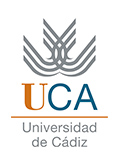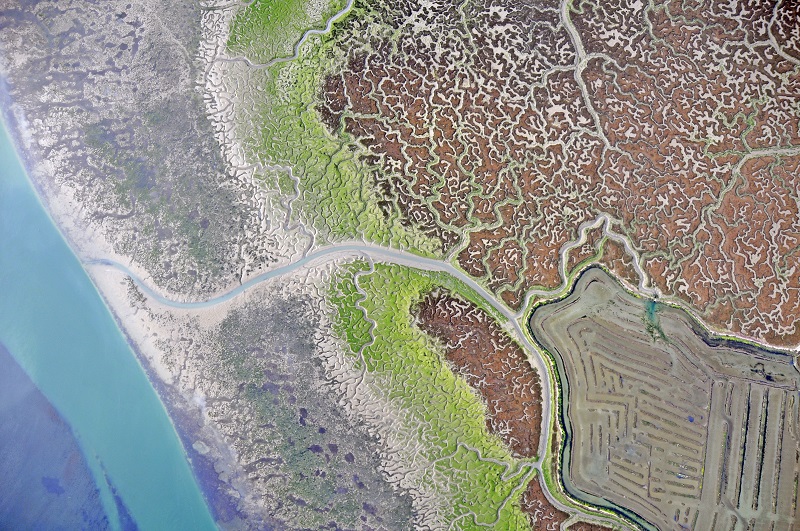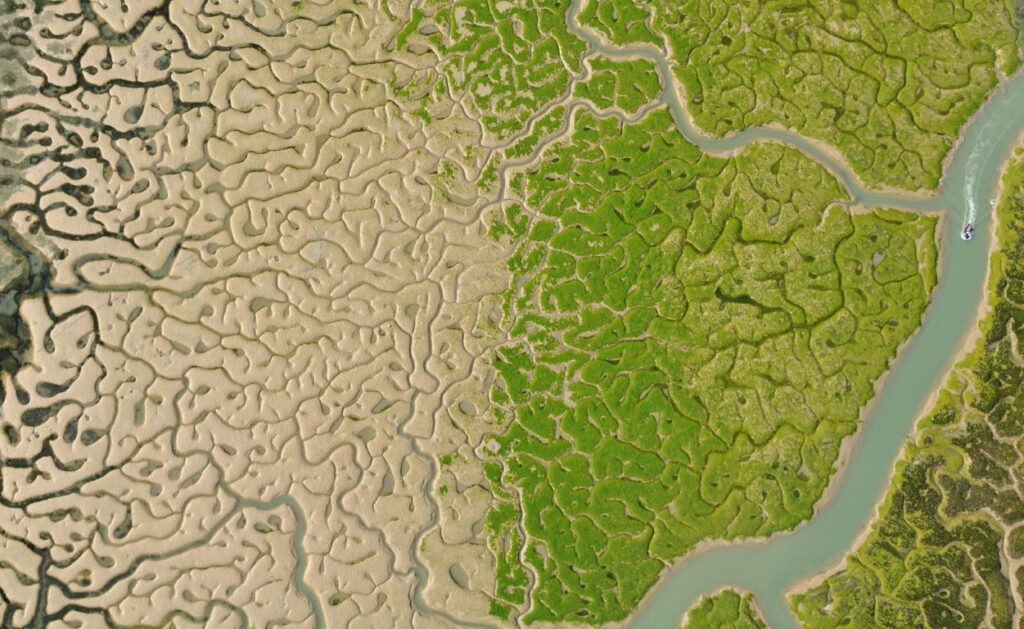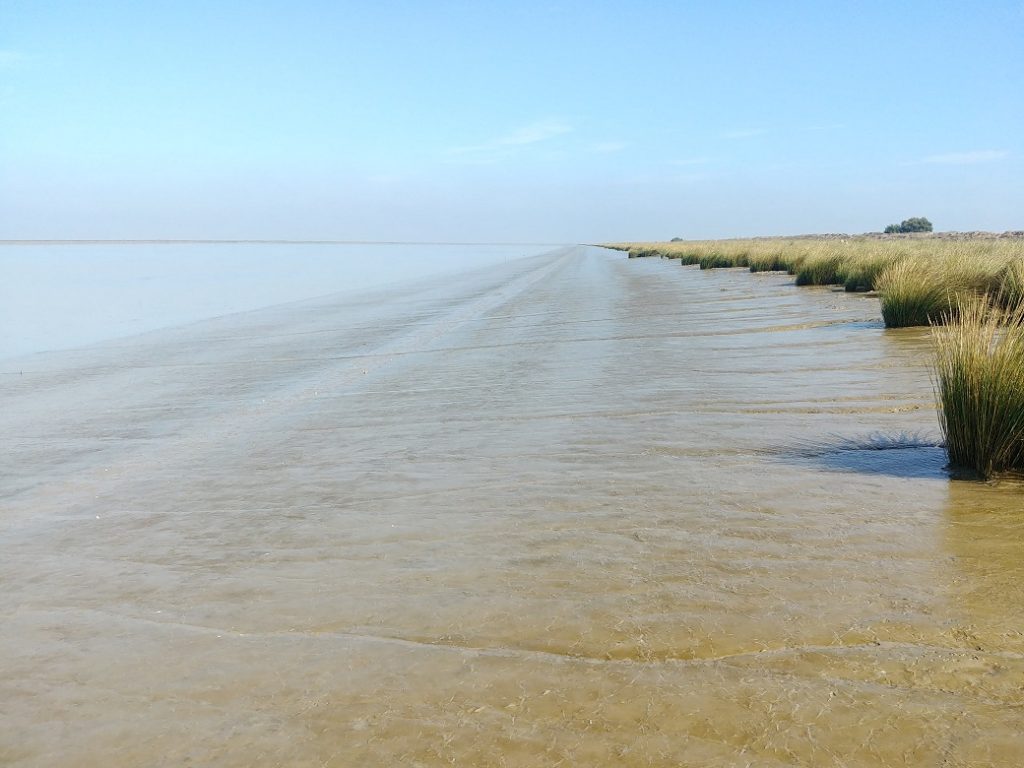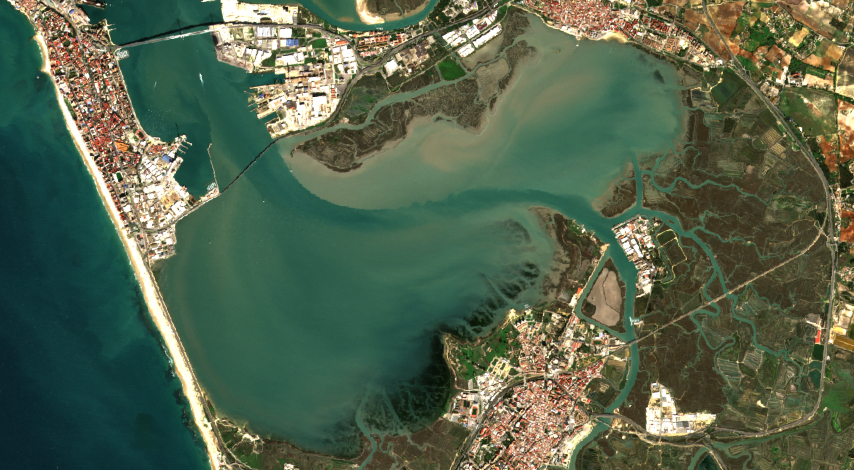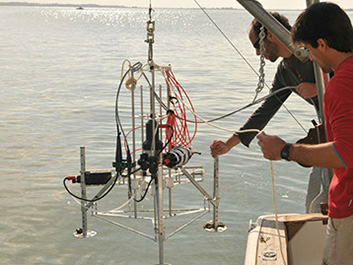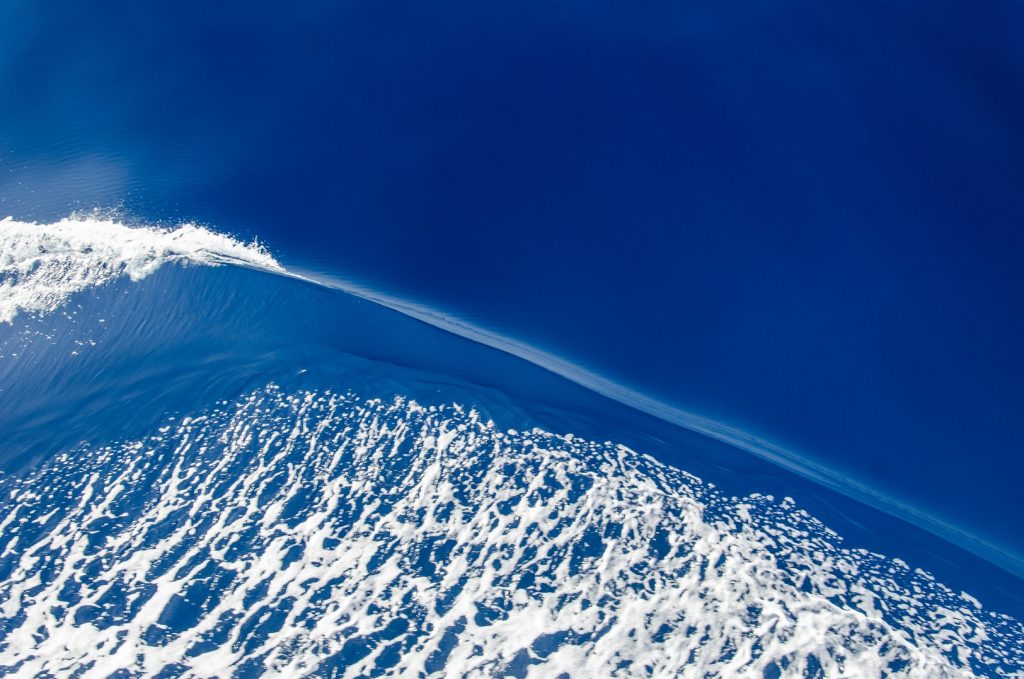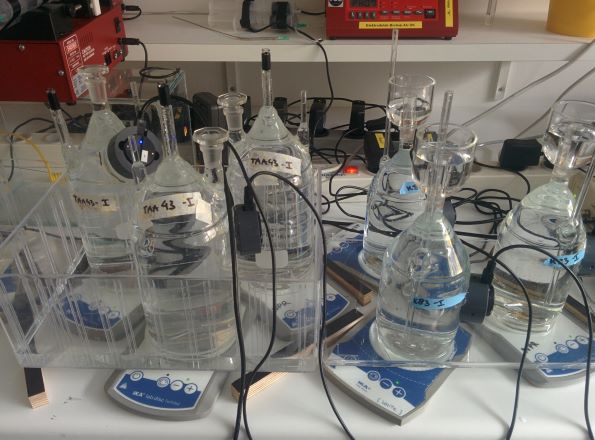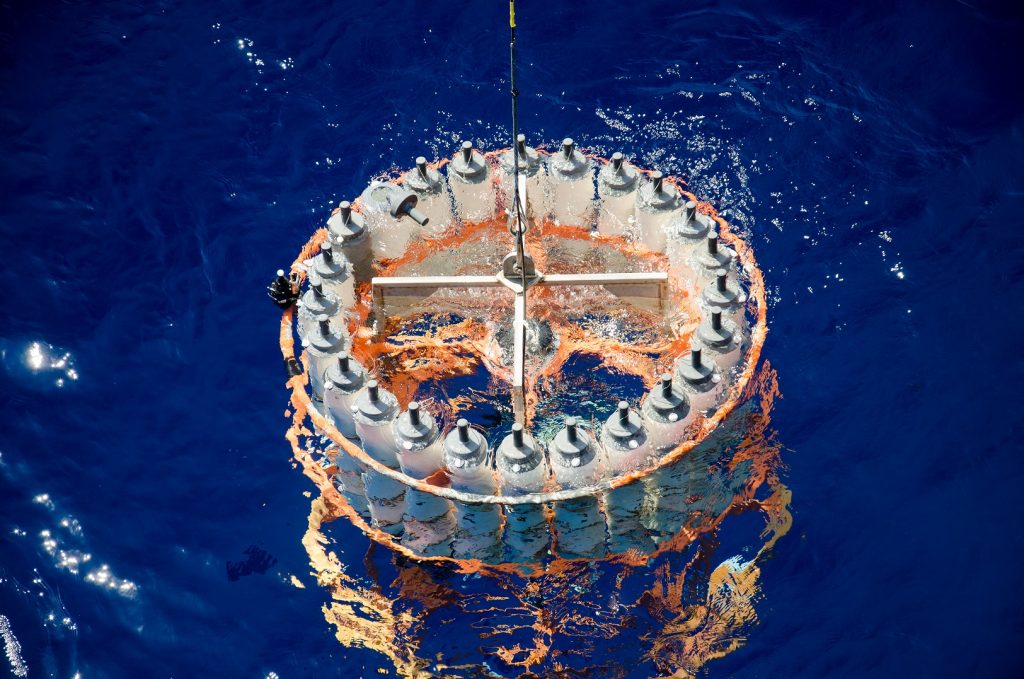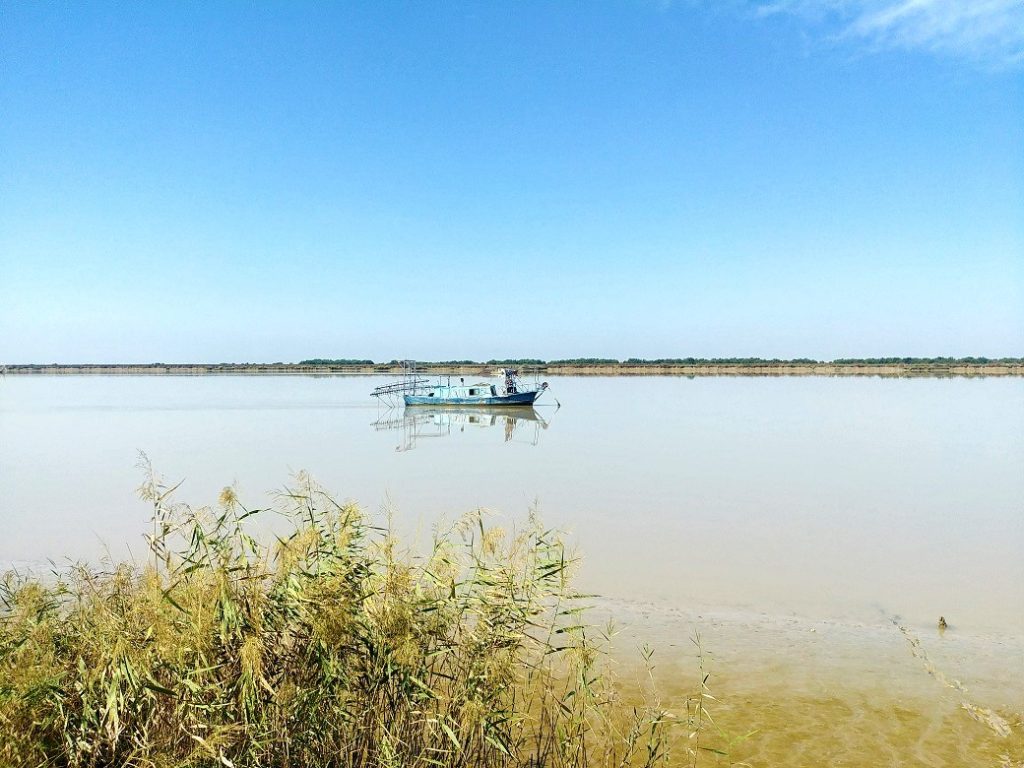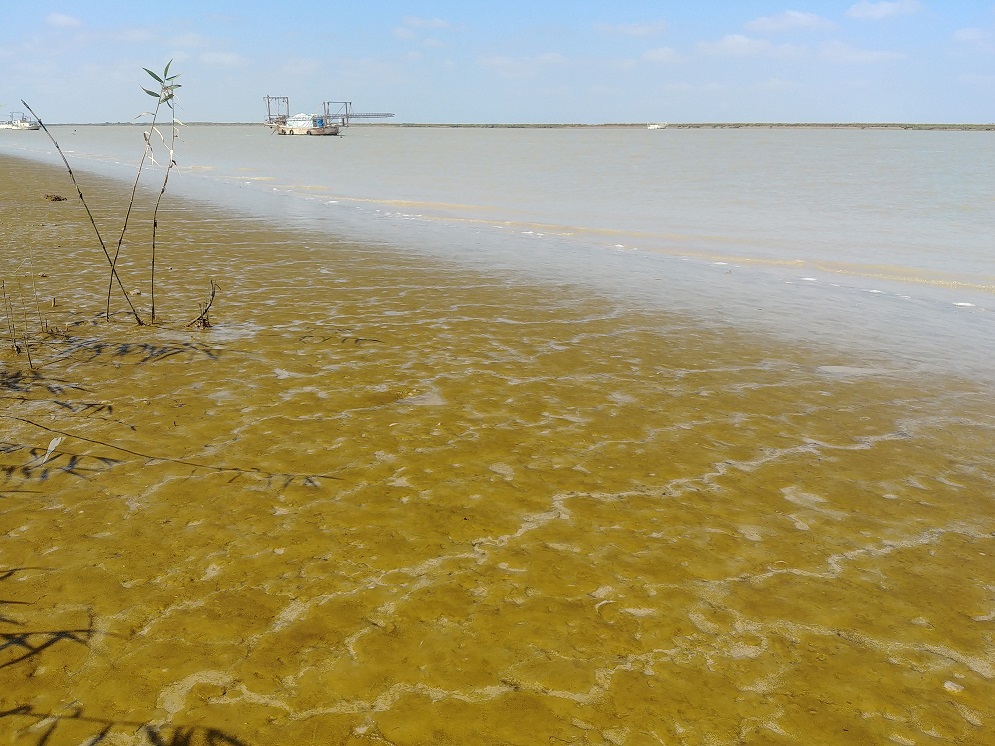Home » Job opportunities
Category Archives: Job opportunities
Lab-Bahia: Postdoc offer to study the biogeochemical fluxes in intertidal ecosystems
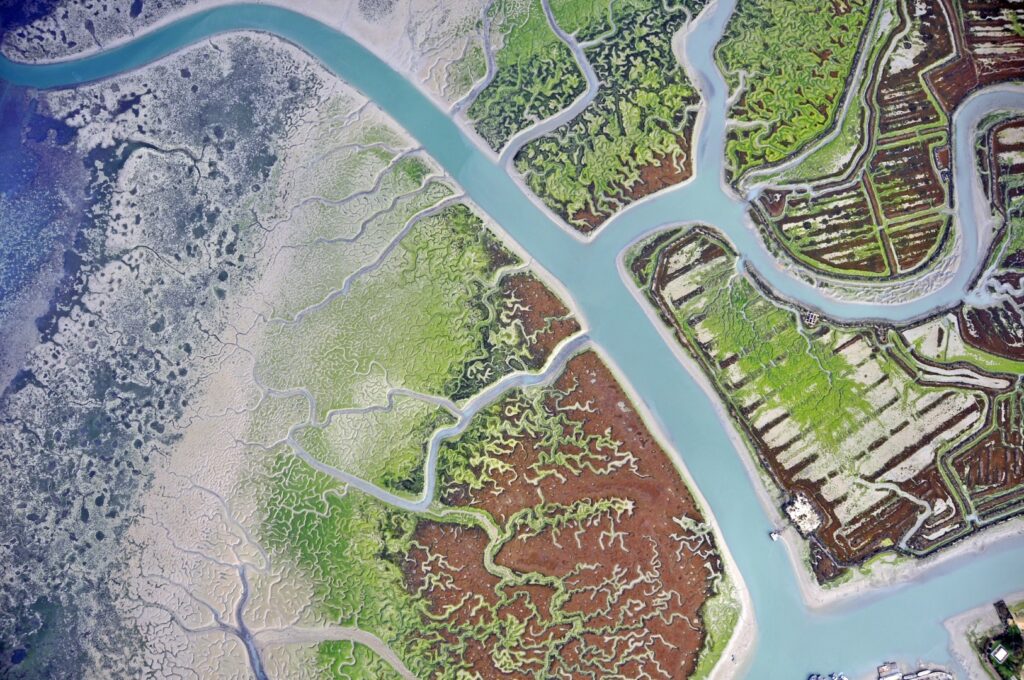
We offer of postdoctoral contract until 31/12/2025, with the possibility of an extension (conditions apply). The applicant is expected to contribute to research on the study of primary production, biogeochemical fluxes and carbon sequestration and biodiversity patterns in response to climate change in the project “Multiscale monitoring of carbon sequestration, biodiversity and climate change in coastal marshes” (Lab-Bahia). Lab-Bahia is a project funded by the Supplementary Marine Science Plan and the Recovery, Transformation and Resilience Plan of the Spanish Ministry of Science and Innovation.

What?
We are looking for a postdoctoral researcher to assist with the following tasks:
Contribute to research on the study of primary production, biogeochemical fluxes and carbon sequestration and biodiversity patterns in response to climate change.
– Analyse the information obtained by remote sensing techniques (drones and satellites) and perform the scaling and mapping of project variables.
– Carry out in situ measurements with field instruments for the measurement of biogeochemical variables and the biogeochemical variables and validation of remotely sensed data.
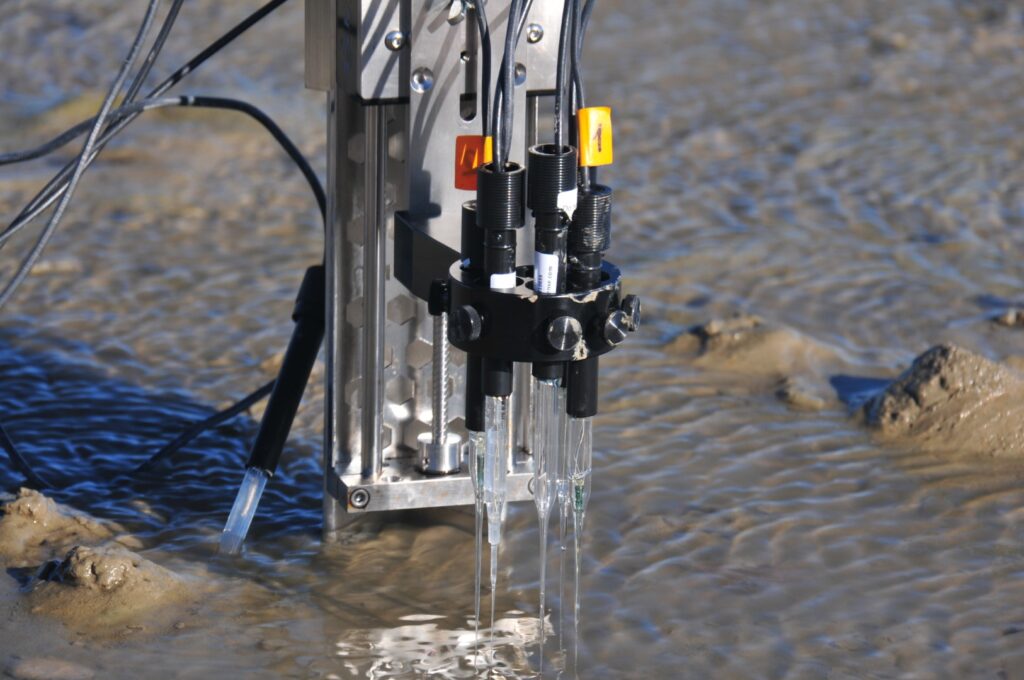
– Data processing and statistical analysis of environmental variables for the determination of spatial patterns of the spatial patterns of photosynthetic communities and primary production in intertidal zones.
– Extract data on biogeochemical, environmental and climatic variables from different sources, organization and sources, organization and preparation for analysis and incorporation into databases.
– Support the development of biogeochemical models in aquatic systems related to primary production in sediment and production in sediment and water, gas and nutrient exchanges at the sediment-water and sediment-air interface, and microbial processes.
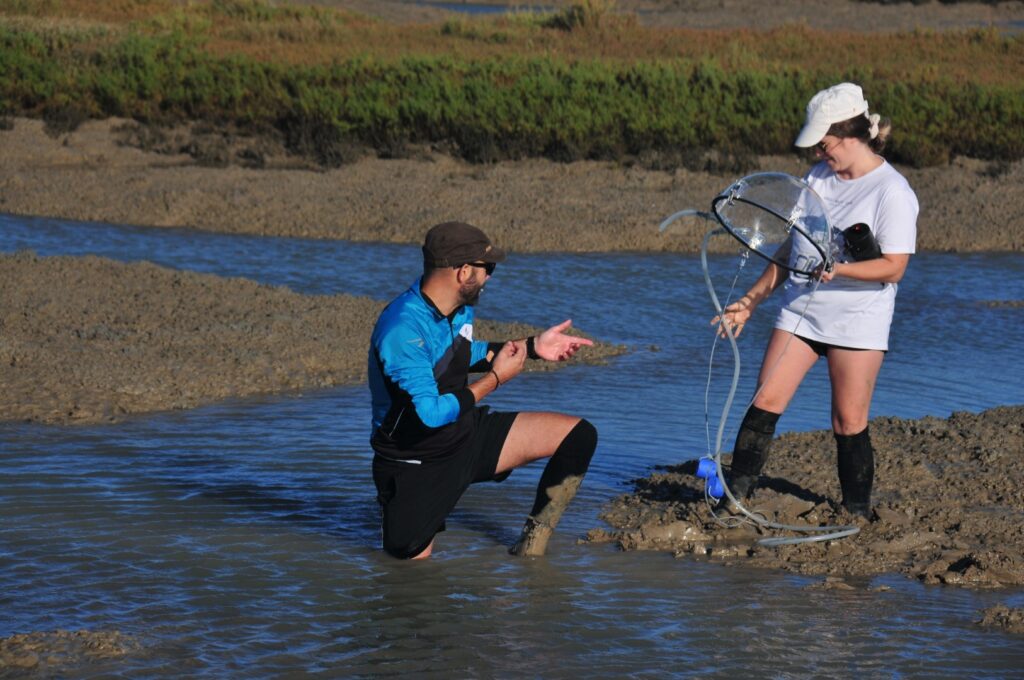
When?
The candidate should start as soon as possible (earliest expected date is early January, which depends on the selection process).
Where?
The selected candidate will join the Microbial Ecology and Biogeochemistry Group of the Department of Biology of the University of Cadiz, under the supervision of Sokratis Papaspyrou.
Preferable skills
– Experience in the measurement of sediment-water and sediment-air fluxes using benthic chambers with IRGA, FTIR, etc. or Eddy covariance towers.
– Experience in spatial ecology of communities, mainly marine photosynthetic communities, and carbon cycle biogeochemistry.
– Experience in Geographic Information Systems (ArcGis, QGis) and advanced programming (ArcPy, Python, Python).
– Experience in the use of statistical tools, for spatial and time series analysis.
– Experience in other techniques related to Microbial Ecology and Biogeochemistry in wetlands and marshes will be highly valued.
– Good knowledge of written and spoken English (scientific level).
How to apply?
The contract offer is published in Spanish in the University of Cádiz website (https://personal.uca.es/convocatorias-de-capitulo-vi-2024/). The call will open from 14th to 23rd November 2024. The specific information is in ANEXOS-nOVIEMBRE-2024 (Anexo 1 in Spanish, English translation here).
https://personal.uca.es/convocatorias-de-capitulo-vi-2024/
Call documents: Annex Calls November 2024
If you require more info or help to apply, please send an email to sokratis.papaspyrou@uca.es. Please, send an email with your CV (any format) and a cover letter before applying for the position. Two reference letters should also be sent by referees to the same email, maximum two weeks after the closing date.
MULTI-FLUX: PhD offer to study the primary production of benthic communities in shallow coastal areas and the effect of climate change
PhD offer to study the primary production of benthic communities and the impact of Extreme Climatic Events, such as heat-waves and wind storms, on shallow coastal areas, focusing on the impacts on the biological community and biogeochemical functioning .
What?
We are looking for a motivated candidate to pursue a doctoral thesis in microbial ecology and biogeochemistry of coastal ecosystems. The project will be supported by the MULTIFLUX project, which aims to quantify in an integrated manner the effect of heat waves and wind storms, affecting temperature and sediment resuspension conditions, on the biogeochemical functioning of a shallow coastal ecosystem.
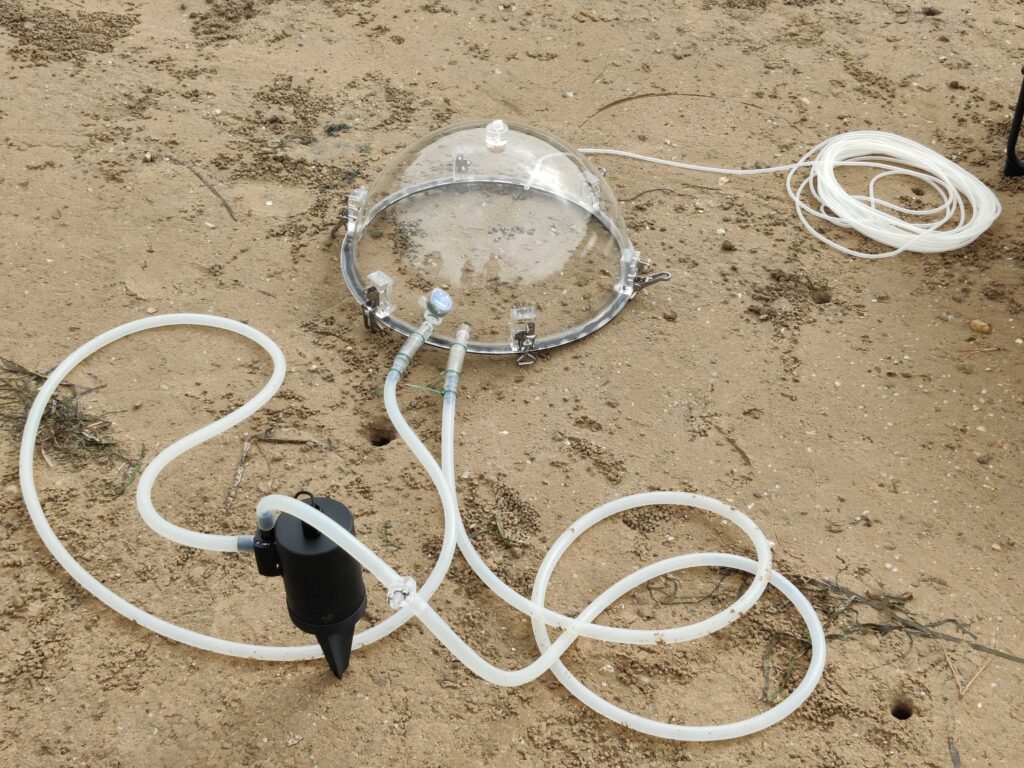
The candidate will use a combination of laboratory experiments, field measurements, and aerial data (satellite, drones…) to study the spatial and temporal variability benthic communities and its contribution to the primary production of the system and evaluate the effect of changes in external forcing by temperature and resuspension/hydrodynamics under normal and extreme conditions on benthic-pelagic coupling and carbon flux throughout the system. Strong focus will be given in the use of benthic chambers and the Aquatic Eddy Covariance technique, in collaboration with our colleagues in SDU (DK). For more information check the project’s webpage here.
When?
It is expected for the PhD to start in January 2025 and will last 4 years, with no possibility of an extension. Depending on the date of the PhD defense, there is the possibility of a postdoc contract within this 4 year period (all contracts included).
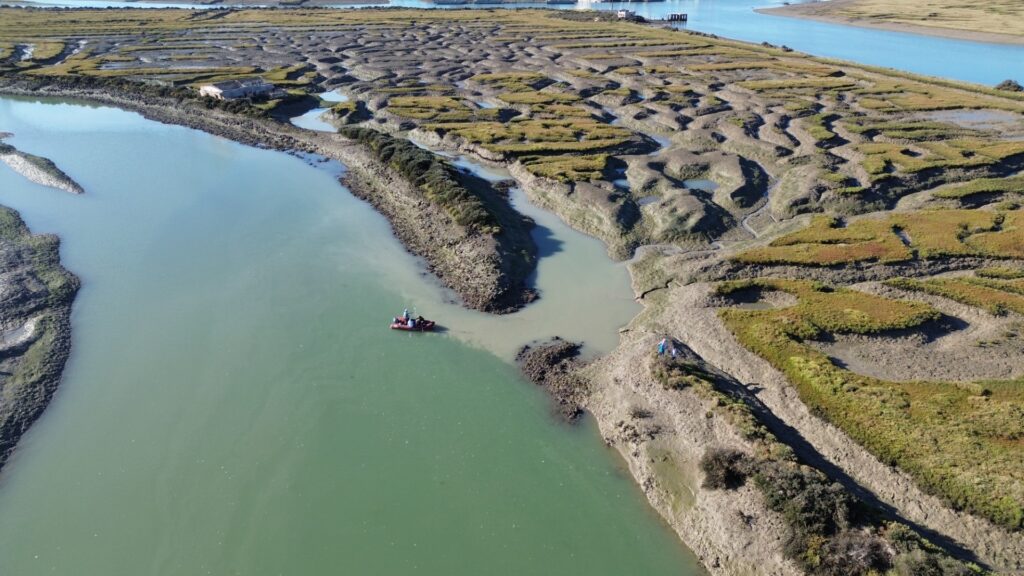
Where?
The PhD will be developed in the Microbial Ecology and Biogeochemistry Group of the Department of Biology of the University of Cadiz, under the supervision of Sokratis Papaspyrou and Irene Laiz.
Requirements
- The candidate must have obtained a bachelor’s degree on Marine or Environmental Sciences, Biology or similar and a Master’s degree preferably also in the same topics.
- The candidates must request to be pre-registered in a Doctoral Program in Marine Science and Technology at the University of Cadiz (https://posgrado.uca.es/doctor/)
- Be highly motivated and committed to develop a scientific career.
- Have some experience on biogeochemistry, aquatic ecology, microbiology, remote sensing, environmental chemistry or similar.
- Have experience on scientific reading and writing.
- Have a high level of written and spoken English.
How to apply?
Applications are open from from October 23rd to November 6th, 2024 (23:59) on the website: https://ugi.uca.es/convocatoria-formacion-personal-investigador-ministerio-de-ciencia-2024/
Please read the call carefully. If in doubt about any aspect (official call is in Spanish), please let us know.
Applications
- Send the application electronically through the following link: https://sedelectronica.uca.es/procedimientos/?proc=474
- IMPORTANT: In order to get access to the system, the applicant must send an e-mail to rrhh.investigacion@uca.es indicating his/her interest in submitting an application mentioning the call and project. Please do this well in advance before the deadline, as this is not an automated system. If you experience delays, please email us.
- Project Reference: PID2023-146617OB-I00 “Monitorización multiescalar de flujos biogeoquímicos y producción primaria en sistemas costeros someros: el efecto del forzamiento físico y del cambio climático”
- Only a single application is allowed per candidate.
- Documentation to be attached:
- Documentation certifying pre-admission to the PhD Program by filling in this form. As this has to be signed by the director of the school, please send it to us, we will do it for you and we will send it back to you.
- Curriculum vitae, using this template: CV
- Academic certificates issued by the universities where the Bachelor’s and Master’s degrees were obtained: the grades obtained, the scale used, and the date of graduation must appear. For the bachelor’s a full transcript should be provided. If the certificate is in a language other than Spanish or English, an official translation should be included. It is recommended that you check and include in the CV the corresponding scales based on these tables. https://www.universidades.gob.es/wp-content/uploads/2022/12/AnexoII-equivalencias.pdf and https://www.universidades.gob.es/wp-content/uploads/2022/12/AnexoI_escalas_1.pdf
- Copy of valid passport in case of foreign, non Spanish resident, citizens.
- Any other documents specified in the call. Please read it carefully.
- Make sure you upload a pdf copy of all certificates of degrees, courses, languages, employment contracts etc. to back the CV claims. The documentation supporting the merits to be evaluated must be submitted in a single PDF file with a maximum size of 15 MB. If no certificates are included, according to Spanish law, the merits cannot be considered.
- Online interviews will be arranged, if all the paperwork is in order and HR forwards the application to us, during November.
Please, send an email with your CV (any format) and a cover letter to sokratis.papaspyrou@uca.es before applying for the position. Two reference letters should also be sent by referees to the same email, by November 15th, 2024.
Only applications sent by the official channel will be considered by HR. Sending an email to us is not enough.
Please, be informed that the net salary for the employee after tax and social security contributions for such positions in Spain is approx. 1200€/mo (fixed by the Ministry of Science and Research), plus an extra pay in June and December (check this table). This salary is lower than in other European countries, however the cost of living is also lower. Here is a comparison of the cost of living between Brussels and Cádiz for indicative purposes only.
RICAS: Postdoc offer to study the CO2 fluxes in intertidal ecosystems with the Eddy Covariance technique
We offer of postdoctoral contract for 1 year, extendable until 30/11/2024, to apply Atmospheric Eddy Covariance techniques in marshes and intertidal zones in the project “Rewilding saltmarshes to increase carbon sequestration, biodiversity and coastal adaptation to climate change as a nature based solution” (RICAS). RICAS is a project funded by the Recovery, Transformation and Resilience Plan of the Spanish Ministry of Science and Innovation.
What?
We are looking for a postdoctoral researcher with proven experience in the Eddy Covariance technique to study CO2 fluxes in the intertidal biological communities of Bay of Cadiz saltmarshes. The candidate will be responsible for setting up a new eddy covariance tower (ECV) with the aim of quantifying CO2 fluxes and evaluating the potential of saltmarsh rewilding, as a nature-based solution to mitigate the increase in atmospheric CO2 and climate change. The information obtained with the ECV will be compared with other techniques such as microsensors and incubations of benthic chambers in situ and sediment cores in the laboratory, in which our laboratory has great experience. The information obtained will be scaled up to the entire Bay using hyperspectral images obtained by drones and multispectral images by satellites, by researchers collaborating in the project
When?
The candidate should start as soon as possible (earliest expected date is late September, which depends on the selection process).
Where?
The selected candidate will join the Microbial Ecology and Biogeochemistry Group of the Department of Biology of the University of Cadiz, under the supervision of Alfonso Corzo and Sokratis Papaspyrou.
Requirements
– The candidate must have demonstrable experience (scientific articles, courses, etc.) in the atmospheric Eddy Covariance technique preferably in wetlands and marshes.
– Experience in other techniques related to Microbial Ecology and Biogeochemistry in wetlands and marshes will be highly valued.
– Must have good knowledge of written and spoken English (scientific level).
How to apply?
The contract offer is published in English and Spanish in the University of Cádiz website (https://personal.uca.es/convocatorias-de-capitulo-vi-2023/). The call will open from 13 to 22 of September. The specific information is in ANEXOS-SEPTIEMBRE-2023 (Anexo 6 in Spanish or Annex 6 in English).
https://personal.uca.es/convocatorias-de-capitulo-vi-2023/
Call documents: Annex Calls September 2023
If you require more info or help to apply, please send an email to alfonso.corzo@uca.es, sokratis.papaspyrou@uca.es.
RICAS: Postdoc offer to study the CO2 fluxes in intertidal ecosystems with the Eddy Covariance technique
We offer of postdoctoral contract for 1 year, extendable until 30/11/2024, to apply Atmospheric Eddy Covariance techniques in marshes and intertidal zones in the project “Rewilding saltmarshes to increase carbon sequestration, biodiversity and coastal adaptation to climate change as a nature based solution” (RICAS). RICAS is a project funded by the Recovery, Transformation and Resilience Plan of the Spanish Ministry of Science and Innovation.
What?
We are looking for a postdoctoral researcher with proven experience in the Eddy Covariance technique to study CO2 fluxes in the intertidal biological communities of Bay of Cadiz saltmarshes. The candidate will be responsible for setting up a new eddy covariance tower (ECV) with the aim of quantifying CO2 fluxes and evaluating the potential of saltmarsh rewilding, as a nature-based solution to mitigate the increase in atmospheric CO2 and climate change. The information obtained with the ECV will be compared with other techniques such as microsensors and incubations of benthic chambers in situ and sediment cores in the laboratory, in which our laboratory has great experience. The information obtained will be scaled up to the entire Bay using hyperspectral images obtained by drones and multispectral images by satellites, by researchers collaborating in the project
When?
The candidate should start as soon as possible (earliest expected date is late September, which depends on the selection process).
Where?
The selected candidate will join the Microbial Ecology and Biogeochemistry Group of the Department of Biology of the University of Cadiz, under the supervision of Alfonso Corzo and Sokratis Papaspyrou.
Requirements
– The candidate must have demonstrable experience (scientific articles, courses, etc.) in the atmospheric Eddy Covariance technique preferably in wetlands and marshes.
– Experience in other techniques related to Microbial Ecology and Biogeochemistry in wetlands and marshes will be highly valued.
– Must have good knowledge of written and spoken English (scientific level).
How to apply?
The University of Cádiz has opened the call for applications from June 20th to June 30th, 2023 on the website
https://personal.uca.es/convocatorias-de-capitulo-vi-2023/
Call documents: Appendix Calls June 2023 pdf
If you require more info or help to apply, please send an email to alfonso.corzo@uca.es, sokratis.papaspyrou@uca.es.
EXTREME-FUN: laboratory technician job offer
PID2020-112488RB-I00/ AEI / 10.13039/501100011033 «R&D Projects» 2020 – Modalities «Research Challenges» and «Knowledge Generation» // PI: Sokratis Papaspyrou /Alfonso Corzo (226.000 €)
Laboratory technician job offer to work on the impacts of Extreme Climatic Events, such as heat-waves and wind storms, on shallow coastal areas, focusing on the impacts on the biological community and biogeochemical functioning of shallow bays and intertidal zones.
What?
We are looking for a motivated candidate to work in microbial ecology and biogeochemistry of oceanic ecosystems. The job is offered within the EXTREME-FUN project (Effects of extreme climatic events on the biogeochemical functioning of shallow coastal areas: from the micro to the macroscale), which aims to quantify in an integrated manner the effect of heat waves and windstorms, affecting temperature and sediment resuspension conditions, on the biogeochemical functioning of a shallow coastal ecosystem.
The candidate, apart form the everyday laboratory activities, will support a combination of laboratory experiments, field measurements and aerial data (satellite, drones…) to study the spatial and temporal variability of the microphytobenthos and its contribution to the primary production of the system and evaluate the effect of changes in external forcing by temperature and resuspension/hydrodynamics under normal and extreme conditions on microphytobenthos physiology, benthic pelagic coupling and carbon flux throughout the system.
When?
The job start in February 2022 and will last initially 6 months, extendable up to a maximum of the duration of the project, reviewed annually.
Where?
The work will be carried out in the Microbial Ecology and Biogeochemistry Group of the Department of Biology of the University of Cadiz, under the supervision of Sokratis Papaspyrou and Alfonso Corzo.
Requirements
- The candidate must have obtained a bachelor’s degree on Marine or Environmental Sciences, Biology or similar .
- Be highly motivated and committed to work both in the laboratory and the field within a highly interdisciplinary and international project team.
- Have experience on biogeochemistry, aquatic microbial ecology, remote sensing, environmental chemistry or similar.
- Have a high level of written and spoken English.
For more details you can consult the call.
How to apply?
The call for applications is open from December 17 to December 28, 2021 on the website: Convocatorias de Capítulo VI 2021
Call: Annex 2
Applications
- Project Reference: PID2020-112488RB-I00, “EFECTO DE LOS EVENTOS CLIMATICOS EXTREMOS SOBRE EL FUNCIONAMIENTO BIOGEOQUIMICO DE ZONAS SOMERAS COSTERAS: DE LA MICRO A LA MACROESCALA”
- Job post reference: 12/2021/2
- Persons with a digital certificate (issued by an official public organisation) can send the application electronically through the following application: https://oficinavirtual.uca.es/oficinaVirtual/EntradaOficinaVirtual?procedimiento=110
- Persons without a valid digital signature certificate should consult the procedure here.
Please send an email with your CV to sokratis.papaspyrou@uca.es before applying for the position.
EXTREME-FUN: PhD offer to study the effects of Extreme Climatic Events on shallow coastal areas
PID2020-112488RB-I00/ AEI / 10.13039/501100011033 «R&D Projects» 2020 – Modalities «Research Challenges» and «Knowledge Generation» // PI: Sokratis Papaspyrou /Alfonso Corzo (226.000 €)

PhD offer to study the impacts of Extreme Climatic Events, such as heat-waves and wind storms, on shallow coastal areas, focusing on the impacts on the biological community and biogeochemical functioning of shallow bays and intertidal zones.
What?
We are looking for a motivated candidate to pursue a doctoral thesis in microbial ecology and biogeochemistry of oceanic ecosystems. The project will be supported by the EXTREME-FUN project (Effects of extreme climatic events on the biogeochemical functioning of shallow coastal areas: from the micro to the macroscale), which aims to quantify in an integrated manner the effect of heat waves and windstorms, affecting temperature and sediment resuspension conditions, on the biogeochemical functioning of a shallow coastal ecosystem.
The candidate will use a combination of laboratory experiments, field measurements and aerial data (satellite, drones…) to study the spatial and temporal variability of the microphytobenthos and its contribution to the primary production of the system and evaluate the effect of changes in external forcing by temperature and resuspension/hydrodynamics under normal and extreme conditions on microphytobenthos physiology, benthic pelagic coupling and carbon flux throughout the system.
When?
The PhD will start in April-May 2022 and will last 3 years, with the possibility of a 1-year extension.
Where?
The PhD will be developed in the Microbial Ecology and Biogeochemistry Group of the Department of Biology of the University of Cadiz, under the supervision of Sokratis Papaspyrou and Alfonso Corzo.
Requirements
- The candidate must have obtained a bachelor’s degree on Marine or Environmental Sciences, Biology or similar and a Master’s degree preferably also in the same topics.
- The candidates must be pre-registered in a Doctoral Program in Marine Science and Technology at the University of Cadiz (https://posgrado.uca.es/doctor/)
- Be highly motivated and committed to develop a scientific career.
- Have some experience on biogeochemistry, aquatic ecology, microbiology, remote sensing, environmental chemistry or similar.
- Have experience on scientific reading and writing.
- Have a high level of written and spoken English.
How to apply?
The Ministry has opened the call for applications from October 28 to November 11, 2021 on the website: https://sede.micinn.gob.es/ayudaspredoctorales/
Call: Ayudas para contratos predoctorales para la formación de doctores 2021
Applications
- Send the application electronically through the following application: https://sede.micinn.gob.es/ayudaspredoctorales/
- Project Reference: PID2020-112488RB-I00, “EFECTO DE LOS EVENTOS CLIMATICOS EXTREMOS SOBRE EL FUNCIONAMIENTO BIOGEOQUIMICO DE ZONAS SOMERAS COSTERAS: DE LA MICRO A LA MACROESCALA”
- Only a single application is allowed per candidate.
- Documentation to be attached:
- documentation certifying pre-admission to the PhD Program 2022/23: application page.
- In case of doubts: contact the doctoral school
- Curriculum vitae, preferably using the template of the ministry: template
- Academic certificate issued by the University where the Bachelor’s and Master’s degrees were obtained: the grades obtained and the date of graduation must appear.
- Copy of valid passport in case of foreign citizens.
- documentation certifying pre-admission to the PhD Program 2022/23: application page.
Please send an email with your CV to sokratis.papaspyrou@uca.es before applying for the position.
MAMBO: PhD offer to study the microbial metabolism in Oxygen Minimum Zones and low oxygen environments
PhD offer to study the microbial metabolism in Oxygen Minimum Zones and low oxygen environments, being focused on the impact of decreasing oxygen conditions on the respiration rates of model microorganisms and microbial communities of Oxygen Minimum Zones.
What?
We are looking for a motivated candidate to pursue a doctoral thesis in microbial ecology and biogeochemistry of oceanic ecosystems. The project will be supported by the MAMBO project (MicrobiAl Metabolism in the Boundary of Oxic-anoxic conditions), which aims to study the response of marine microbial communities to decreasing oxygen levels, providing useful information to understand the impacts of the ocean deoxygenation in coastal zones impacted by hypoxic/anoxic events and in the vast Oxygen Minimum Zones.
The candidate will use a combination of laboratory experiments and field measurements during oceanographic cruises to study the kinetics of aerobic respiration and gene expression of model microbes and of microbial community from oceanic regions affected or not by low oxygen conditions.
When?
The PhD will start in April-May 2022 and will last 3 years, with the possibility of a 1-year extension.
Where?
The PhD will be developed in the Microbial Ecology and Biogeochemistry Group of the Department of Biology of the University of Cadiz, under the supervision of Emilio Garcia Robledo.
Requirements
- The candidate must have obtained a bachelor’s degree on Marine or Environmental Sciences, Biology, Biotechnology or similar and a Master’s degree preferably also in the same topics.
- The candidates must be pre-registered in a Doctoral Program in Marine Science and Technology at the University of Cadiz (https://posgrado.uca.es/doctor/)
- The candidate must not be a doctor or have had a PhD grant of more than 12 months.
- Be highly motivated and committed to develop a scientific career.
- Have some experience on aquatic ecology, microbiology, biogeochemistry, molecular biology or similar.
- Have experience on scientific reading and writing
- Have a high level of written and spoken English
How to apply?
The University of Cadiz has opened the call for applications from October 29 to November 25, 2021 on the website planpropioinvestigacion.uca.es/contratos-predoctorales-asociados-a-proyectos-y-rc-pif-2021/
Call: BOUCA341
Please send an email with your CV to emilio.garcia@uca.es before applying for the position.
Applications
- Send the application electronically through the following application: planpropioinvestigacion.uca.es/contratos-predoctorales-asociados-a-proyectos-y-rc-pif-2021/
- Project Reference: Microbial Metabolism at the Oxic-Anoxic Border – MAMBO: PID2020-117340RA-00

- Only a single application is allowed
- Documentation to be attached:
- documentation accrediting pre-admission to the PhD Program 2022/23: application page.
- In case of doubts: contact doctoral school
- Curriculum vitae according to the format included in the Annex IV of the call for applications: template
- Academic certificate issued by the University where the Bachelor’s or Master’s degree was obtained: the grades obtained and the date of obtaining must appear. In the case of certificates issued by foreign centers, the maximum and minimum grades within the corresponding evaluation system and the minimum passing grade must also be stated. If the academic certification is issued in a language other than Spanish or English, it must be accompanied by the corresponding official translation into one of these two languages.
- Responsible declaration of not being in possession of a Doctor’s degree: template
- Statement that the applicant has not previously held a pre-doctoral contract for a period of more than 12 months: template.
- Copy of valid passport in case of foreign citizens.
- documentation accrediting pre-admission to the PhD Program 2022/23: application page.
EMERGE: PhD offer to study the impacts of heatwaves on coastal ecosystems
PhD offer to study the impacts of heatwaves on coastal ecosystems, being focused on the changes in the carbon and nitrogen cycle and the associated microbial community.
What?
We are looking for a motivated candidate to pursue a doctoral thesis in microbial ecology and biogeochemistry of coastal ecosystems. The project will be supported by the EMERGE project (Impacts of heat waves in shallow coastal environments: effects on microbial communities and the release of greenhouse gases), which aims to study coastal ecosystems impacted by rising temperatures during increasingly frequent heat waves. The candidate will use a combination of laboratory experiments (micro and mesocosms) and field measurements to study the net metabolism of the benthic compartment, the production and release of greenhouse gases (methane, nitrous oxide and carbon dioxide) and the microbial community with molecular techniques.
When?
The PhD will start in April-May 2022 and will last 3 years, with the possibility of a 1-year extension.
Where?
The PhD will be carried out in the Microbial Ecology and Biogeochemistry Group of the Department of Biology of the University of Cadiz, under the supervision of Emilio Garcia Robledo.
Requirements
- The candidate must have obtained a bachelor’s degree on Marine or Environmental Sciences, Biology, Biotechnology or similar and a Master’s degree preferably also in the same topics.
- The candidates must be pre-registered in a Doctoral Program in Marine Science and Technology at the University of Cadiz (https://posgrado.uca.es/doctor/)
- The candidate must not be a doctor or have had a PhD grant of more than 12 months.
- Be highly motivated and committed to develop a scientific career.
- Have some experience on aquatic ecology, microbiology, biogeochemistry, molecular biology or similar.
- Have experience on scientific reading and writing
- Have a high level of written and spoken English
How to apply?
The University of Cadiz has opened the call for applications from October 29 to November 25, 2021 on the website planpropioinvestigacion.uca.es/contratos-predoctorales-asociados-a-proyectos-y-rc-pif-2021/
Call: BOUCA341
Please send an email with your CV to emilio.garcia@uca.es before applying for the position.
Applications
- Send the application electronically through the following application: planpropioinvestigacion.uca.es/contratos-predoctorales-asociados-a-proyectos-y-rc-pif-2021/
- Project Reference: Contrato Ramon y Cajal: RYC2019-027675. Title: “PROGRAMA DE DOCTORADO EN CIENCIAS Y TECNOLOGÍAS MARINAS”

- Only a single application is allowed
- Documentation to be attached:
- documentation accrediting pre-admission to the PhD Program 2022/23: application page.
- In case of doubts: contact doctoral school
- Curriculum vitae according to the format included in the Annex IV of the call for applications: template
- Academic certificate issued by the University where the Bachelor’s or Master’s degree was obtained: the grades obtained and the date of obtaining must appear. In the case of certificates issued by foreign centers, the maximum and minimum grades within the corresponding evaluation system and the minimum passing grade must also be stated. If the academic certification is issued in a language other than Spanish or English, it must be accompanied by the corresponding official translation into one of these two languages.
- Responsible declaration of not being in possession of a Doctor’s degree: template
- Statement that the applicant has not previously held a pre-doctoral contract for a period of more than 12 months: template.
- Copy of valid passport in case of foreign citizens.
- documentation accrediting pre-admission to the PhD Program 2022/23: application page.
BIOCOBRE project: PhD fellowship
We are looking for a candidate interested in applying for the call for pre-doctoral contracts for research personnel in training of the Junta de Andalucía, to carry out the doctoral thesis at the University of Cadiz in the framework of the project “Bioprecipitation of metallic copper from acid mine drainage in the Iberian Pyritic Belt” BIOCOBRE, funded by the Junta de Andalucía.
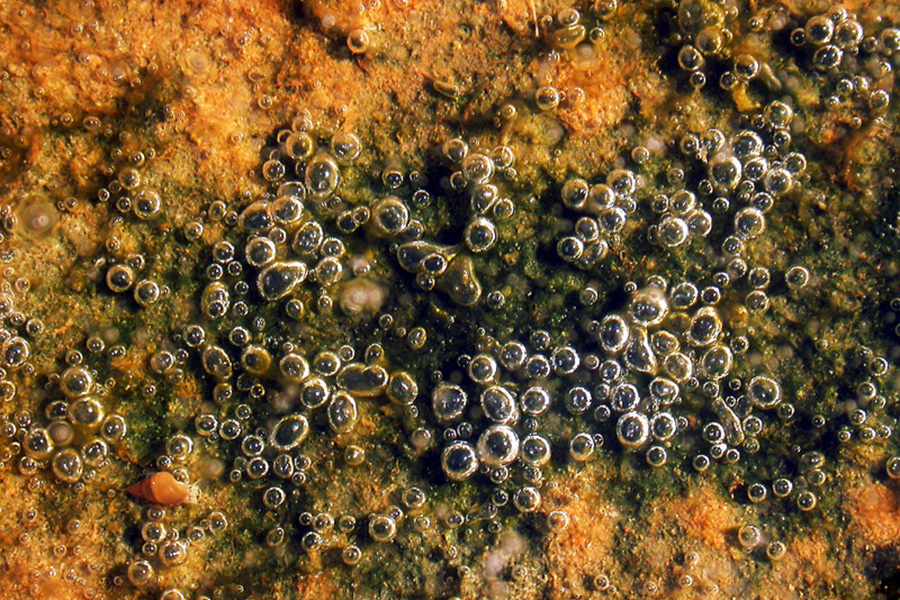
The aim of the project is to study precipitates of copper salts and oxides in environments contaminated by acid mine drainage (AMD). The biogeochemical conditions, the microbial community and the metabolic pathways involved in the precipitation of copper nanoparticles in biofilm growing in areas of acid mine drainage (AMD) in the Iberian Pyritic Belt (Huelva) will be investigated.
To understand the process we will 1) define the geochemical environment within the biofilm and measure copper precipitation rates under different conditions, 2) describe the evolution of the biofilm microbial community from colonisation to maturity, 3) isolate and culture the biofilm microorganisms potentially involved in the copper precipitation process. To achieve these objectives, we will use a multidisciplinary approach combining state-of-the-art techniques from different scientific disciplines: microsensors (O2, H2S, pH and Eh), geochemical and mineralogical methods, scanning transmission electron microscopy (STEM), omics tools (metagenomics, metatranscriptomics, metaproteomics, metabolomics) and multispecific and axenic microbial cultures.
Requirements
- Degree in Biological Sciences, Biotechnology or similar with at least 240 credits.
- Average grade of the academic transcript higher than 8.0 out of 10.
In addition, the candidate must be highly motivated to carry out a doctoral thesis and be willing to train as a researcher in the microbiology of systems impacted by acid mine drainage, and have basic knowledge of cultures/reactors, omics tools or biogeochemistry. Good oral and written communication skills in English would also be an asset.
If successful, the PhD student will join the Ecology Area of the Department of Biology of the University of Cadiz and specifically the Microbial Ecology and Biogeochemistry group (microbentos.uca.es).
Contact: Those interested should send their CV (with academic transcript) and motivation letter to Alfonso Corzo (alfonso.corzo@uca.es) before 24 June 2021.
The call (in Spanish) can be found here:
PhD fellowship call
We are looking for candidates interested in applying for the call for pre-doctoral contracts for research personnel in training of the Junta de Andalucía, to carry out the doctoral thesis at the University of Cadiz in one of our current and future projects
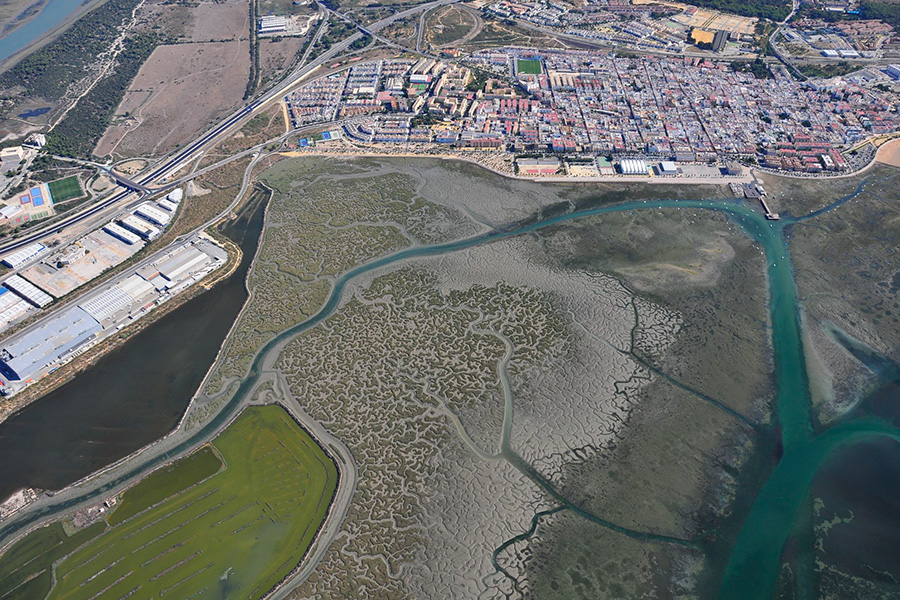
Currently we have one active project and three accepted expected to start this year.
For more information on the projects check the individual ads.
Contact: Those interested to apply for this public call should send their CV (with academic transcript) and motivation letter to Alfonso Corzo (alfonso.corzo@uca.es) before 24 June 2021.
The call (in Spanish) can be found here:
More openings in our projects are expected to be offered at a later date this year.
